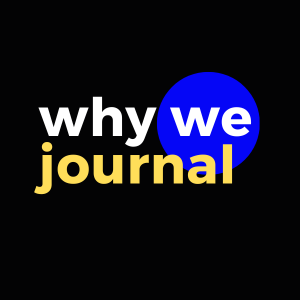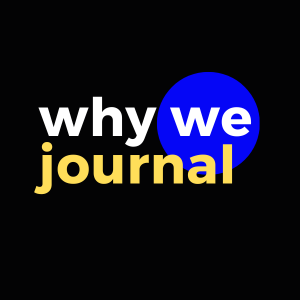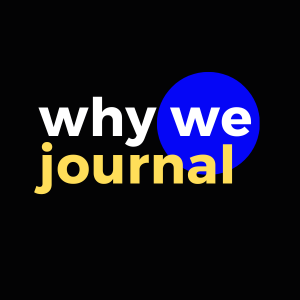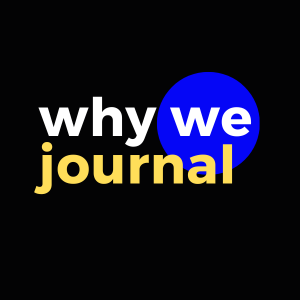Using Music and Sound For Journaling, (Or For Anything Else)
I do a monthly series on music. Specifically, music for journaling, but can be used for anything that helps focus and mood. I'm a big believer in hacking the mind for productivity and wellness, and music can aid this.

Hello Fellow Journalers!🖊️📖
If you've been keeping up with Why We Journal, you may have noticed I do a monthly series on music. Specifically, music for journaling, but can be used for anything that helps focus and mood. I'm a big believer in hacking the mind for productivity and wellness, and music can aid this.
I've done the "How To Journal" and "7 Ways Use Visual Prompts". It's (finally) time to learn how to use music for journaling, or literally anything else in your life.
What Can Music Even Do?

Music Can
Help Focus
Help Mood
Improve Cognitive Function
Be A Reward
Science! AKA, Research Says...
When it comes to focus, music has been shown to aid concentration. One study proved that your preferred music boosts your cognitive performance, when observed on puzzle solving abilities. (1) Also, your preferred music can help sustain your attention when it comes to lower demanding tasks. This means less mind-wandering and more focus on the project at hand. (2)
Cognitive function can also have a boost with music, but it depends on the type. When it comes to ambient noise, lower levels are helpful, but higher level ambient noises tend to impair and negatively impact focus.(3)
Music has been proven to improve mood and enhance mindfulness and emotions. Music can also aid in emotional regulation, by experiencing a cathartic effect with negative emotions. (4,5) Studies have also proven music as an effective intervention for stress reduction and mood management. (6, 7)
How To Use Music For Journaling (or writing, studying, or anything else in your life)
- Use music to direct the mood you need. Are you looking for calm, something with energy, and emotional overture, or just something in the background to work to? Be purposeful with your music choices. Choose music you like, as research supports your preferred music is what improves your focus and concentration.
- Use music to practice mindfulness and emotional regulation. Have a bad day? Maybe an anniversary of a not so fun memory? Select music to work through the catharsis of emotions and expel energy that holds you back.
- Use music to take a break and give yourself a reward. Sometimes our favorite music or musical artist deserves our full attention and not placed in the background for our foreground task. Use delayed gratification and get your checklist done, and jam to your favorite tunes.
Check out Why We Journal Music Posts and Playlists as a place to get started for your background music journaling jam. My favorite is lo-fi but check out the playlist on Youtube!




If you've made it this far, please consider signing up for the monthly 311 newsletter. Want a preview? Head here.
Stay connected with me on LinkedIn, Pinterest, Instagram, Facebook, Threads, and Amazon.
That's all for this post!
-A Very Enthusiastic Journaler

Citations
- Kheradmand, D. (2022). Music Enhances Focus and Concentration. Digital Scholarship @UNLV. https://digitalscholarship.unlv.edu/cgi/viewcontent.cgi?article=1174&context=durep_posters
- Rahm, B., & Rinne, T. (2021). The effect of preferred background music on task-focus in sustained attention. PloS One, 16(10), e0258210.
- Storzer, J., & Müller, S. (2012). The effects of ambient noise on cognitive performance. Psychological Research, 76(3), 324-333.
- Husain, M., & Thompson, W. F. (2003). The effect of music listening on mood and physiological responses in healthy adults. Journal of Music Therapy, 40(1), 11-22.
- Kowalczyk, A., & Podgórska, A. (2021). Music as a tool for mood regulation: The role of absorption vs. mindfulness. Psychology of Music, 49(1), 105-123.
- Davis, J. M., Thaut, M. H., & Gardiner, M. F. (2001). The impact of music on mood and stress reduction in healthy adults. Journal of Music Therapy, 38(2), 114-132.
- Maratos, A., Crawford, M. J., & Krumhansl, C. L. (2009). Music therapy for mood disorders: A systematic review and meta-analysis. Clinical Psychology Review, 29(6), 599-616.







